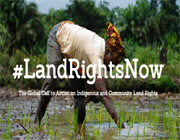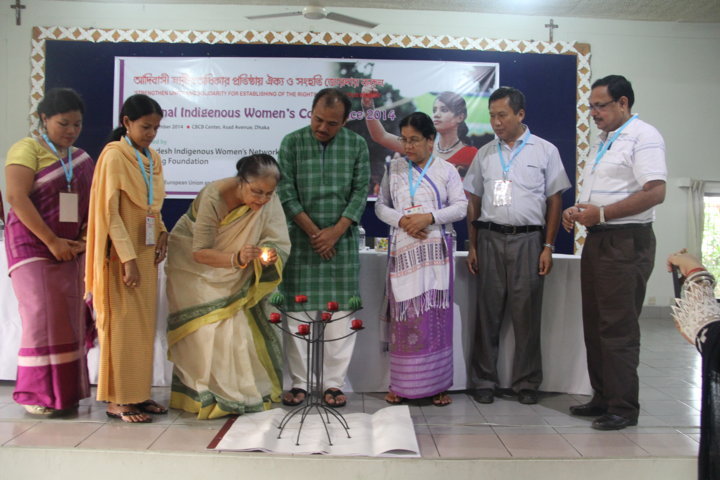
Second National Indigenous Women Conference was held at CBCB Centre in Dhaka on September 6-7, 2014.The two-day long national conference was jointly organised by Bangladesh Indigenous Women’s Network (BIWN) and Kapaeeng Foundation in co-operation with Oxfam and European Union with the titled ‘Strengthen Unity and Solidarity for Establishing of the Rights of Indigenous Women’. A total of 120 indigenous women rights activists and organisers from different parts of the country attended the conference. Despites representatives of 16 indigenous organisations and 15 indigenous ethnic groups,a number of indigenous young women and girls working for rights of indigenous peoples were present in the event.
Indigenous women rights activists, indigenous rights activist, youths, leaders of national level mainstream women organisations and indigenous experts spoke in the conference and shared their experiences regarding the causes of the indigenous women in Bangladesh.
In the opening session, Ayesha Khanom, president of Bangladesh Mohila Porishod inaugurated the conference lighting the candles. Among others, Mr. MB Akhter, program manager of Oxfam; Mr. Mangal Kumar Chakma, advisor of Kapaeeng Foundation; Mr. Sanjeeb Drong, general secretary of Bangladesh Indigenous Peoples Forum were spoke in the inaugural session while Ms. Minu Maria Mrong presided over the program.
The Chief Guest of the opening session Ms. Ayesha Khanom expressed her solidarity for the movement of indigenous women and she hoped through this indigenous women network, the struggle of indigenous women will be strengthened and solidarity between the movements of indigenous women and mainstream women will also be accelerated. Other speakers urged the leaders and representatives of indigenous women’s organizations to be united for the rights of indigenous women.
The two days long conference cum workshop has been organised with women participants from both plain land and the Chittagong Hill Tracts (CHT). A number of issues were discussed in the workshops, including overall human rights situation of indigenous women, development of indigenous women leadership, indigenous women rights in the process of developmentof human society and future action plan of indigenous women organisations. Different sessions of the conference were conducted by Advocate Rakhi Das Purokaistha, Bangladesh Mahila Parishad; Mr. Mangal Kumar Chakma, advisor of Kapaeeng Foundation; Mr. Shakti Pada Tripura, organising secretary of BIPF;Mr. Saikat Biswas, program coordinator of Oxfam-GB; and Pallab Chakma, executive director of Kapaeeng Foundation.On behalf of BIWN secretariat, a brief report on last two years activities of BIWN was presented by Falguni Tripura.
It is learnt that although there were many limitations in BIWN, it had done many significant worksin the last two years. BIWN organized training and human chain on VAIW issues and submitted memorandum to State Ministry of home affairs. BIWN also published two books on violence against indigenous women in Bangladesh. One is jointly published with CHT Commission and IWGIA titled on`Marginalisation and impunity violence against women and girls in the Chittagong Hill Tracts’.Moreover, BIWN had submitted communications to CEDAW committee, CSW and CERD committee. Besides, representatives of BIWN attended in indigenous women related conferences and played a vital role both in national and international level.
In the conference, women representatives from different indigenous region presented regional situational reports. From their presentations, it is reported that indigenous women both in the CHT and plain land are facing serious violation of human rights, sexual violence, insecurity, harassment, threats and so on in their daily life. Due to non-implementation of CHT Accord of 1997, lack of women’s participation in development processes, political arena and decision making process, women are struggling for their rights. In many cases, they remain out of education and healthcare services both in the CHT and in the plains. The biggest concern is rape and other violence against indigenous women. According to the participants, it is occurring repeatedly due to lack of access to justice and absolute impunity that perpetrators enjoy.
In group works, the participant identified some major problem of present situation on indigenous women issues. Participants from North Bengal described that they are facing land problem as no land commission established for indigenous peoples in the plains yet. They also mentioned about discriminations of wage while participants of greater Mymensingh raised the issues of sexual harassment and false cases in connection withprotest against eco-park establishment by the government in the name of development. Sylhet region women leaders stated that they are facing continue eviction from their ancestral land and pan punjees (betel leaf cultivation). The owners of tea garden and land grabbers play vital role in this regards. On the other hand, a group from Coastal area mentioned that they are having problem with land grabbing and natural disaster which are big problem in coastal region.
At the end of the Conference, indigenous women leaders and representatives of indigenous women’s organisations adopted ‘Dhaka Declaration’ for united and greater movement in coming days. The followings are the some crucial recommendations included in the declaration –
- Ensure human rights of indigenous women.
- Take steps to eliminate violence against indigenous women and girls.
- Ensure exemplary punishment to the perpetrators of violence against indigenous women and children.
- Provide compensation, treatment and legal help to the victims of sexual harassment.
- Ensure participation of indigenous women representativesin decisions making process
- Implement the CHT Accord and declare a roadmap for its speedy implementation.
- Establish a land commission for indigenous peoples of plain land.
- Ensure education and health care services for indigenous women
- Reserve seat for indigenous women both in parliament and local government’s bodies.
Finally, a 15 member coordination committee was formed for smooth functioning of BIWN for the period of 2014 -2016. In the new committee,Ms. Minu Maria Mrong and Chanchana Chakma were selected as convener and member-secretary respectively.



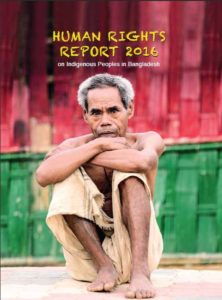
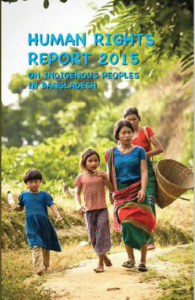
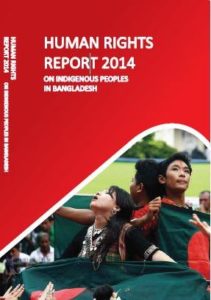
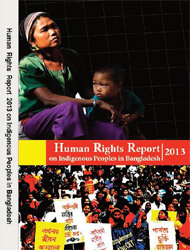
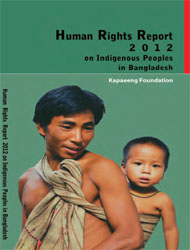
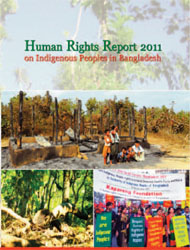
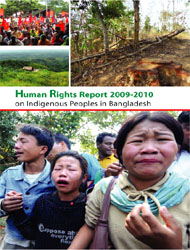

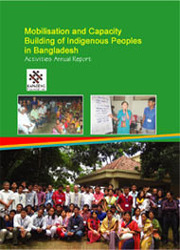



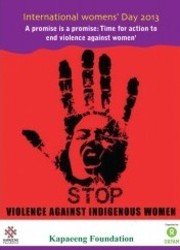
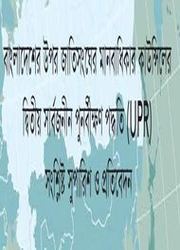
 September 13th, 2014
September 13th, 2014  KapaeengUser
KapaeengUser 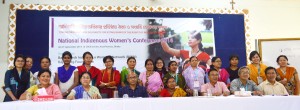
 Posted in
Posted in 